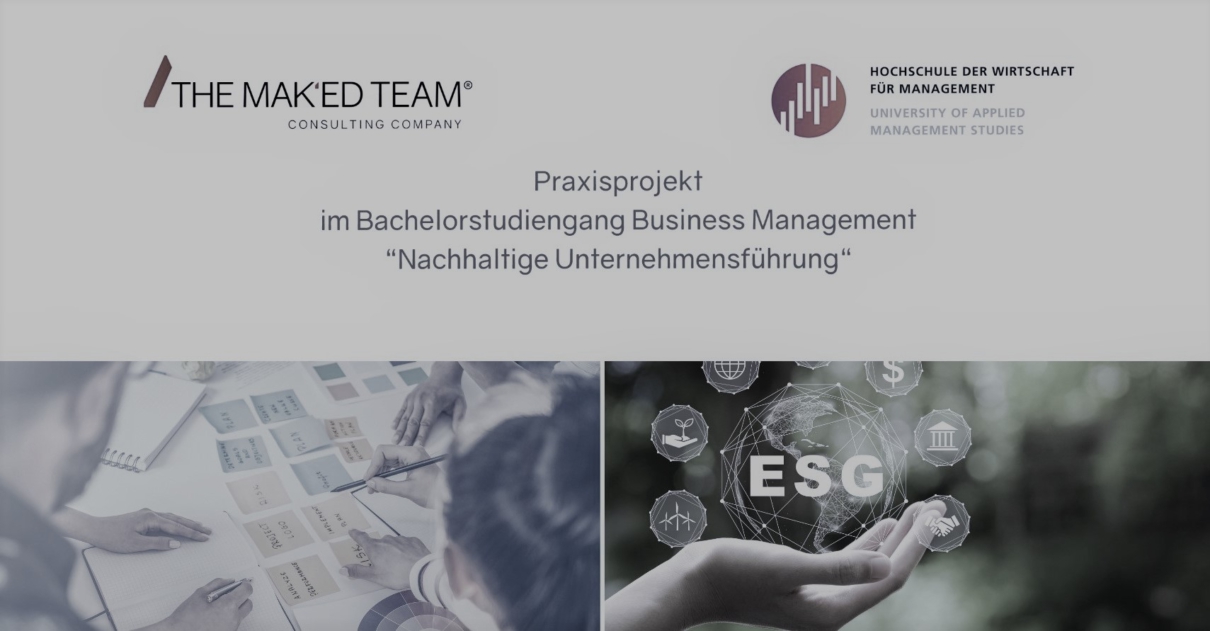Last Friday, July 29, 2022, our Karlsruhe location once again became a mini-campus for a few hours. We at THE MAK`ED TEAM were all very excited when four students and their course director Prof. Dr. Susanne Steimer from the Mannheim School of Management (HdWM) came to our office. Here they presented their practical project, which was also an examination situation. In the project, the students dedicated themselves entirely to the topic “Creation of a sustainability check for small and medium-sized businesses” according to an assignment by THE MAK`ED TEAM. During the elaboration they were actively supported by THE MAK’ED TEAM and developed our case study with great commitment. In their final presentation, the students showed a clearly structured roadmap of what a sustainability check for medium-sized companies across all industries could look like. In the end, they presented a convincing sustainability check for medium-sized companies, which can be carried out in different variants, from a short check-up to an individual workshop. Using well-chosen questions and a traffic light system in the evaluation, the check clearly shows the respective company how sustainably a company is currently positioned and in which areas.
After the all-around convincing and very clearly structured presentation, open questions were clarified in the round and lively discussions were held. THE MAK`ED TEAM has been cooperating with the HdWM since 2021 and focuses on sustainable corporate management. We were also very impressed by this joint project and are already looking forward to the next one.
More about Sustainability topics.
More about Certifications and Memberships.











